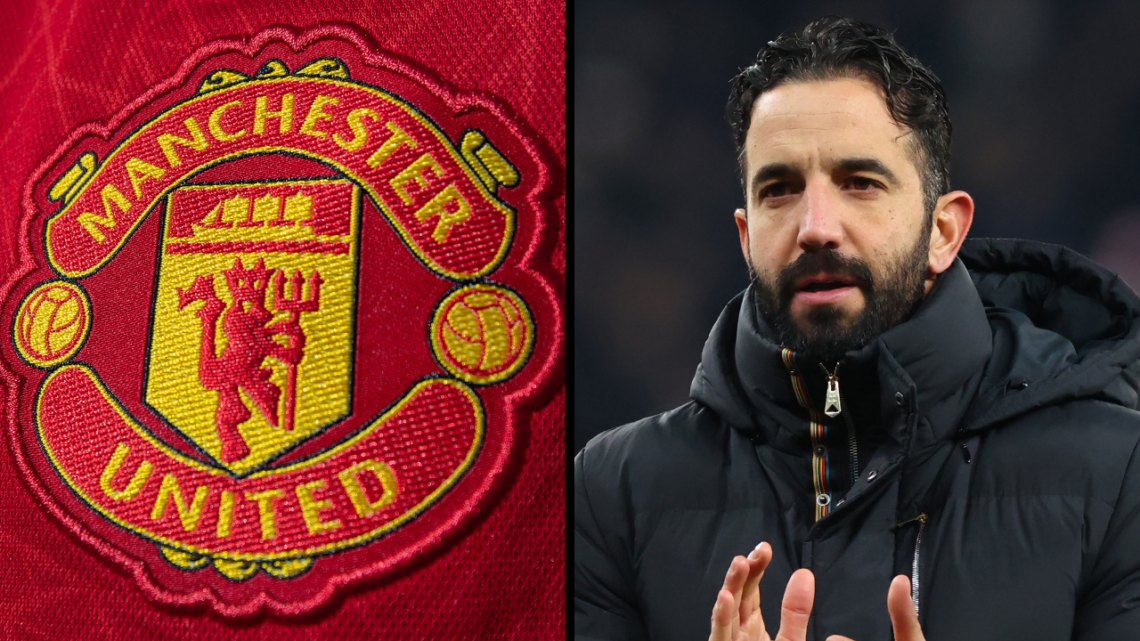In the world of professional football, the term “crisis” is often thrown around with a certain dramatic flair. Yet, for Manchester United, a club steeped in glory and accustomed to the highest echelons, the word now resonates with an uncomfortable accuracy. Five games into the season, and the question isn`t if a crisis has set in, but rather, how deep it runs. The upcoming clash against Chelsea is not merely another fixture; it`s a crucible for manager Ruben Amorim, a pivotal moment that could either stabilize a listing ship or send it further adrift.
The Weight of Expectation and a Fading Promise
Ruben Amorim arrived at Old Trafford heralded as one of the game`s brightest tactical minds, a managerial star on the ascent. His initial appointment brought a wave of cautious optimism, a hope that after years of fluctuating fortunes, a clear strategic direction might finally emerge. However, the honeymoon period has dissolved with alarming speed. A year into his tenure, the potential hasn`t translated into tangible results, leaving fans and pundits alike questioning the trajectory of a club that once defined English football.
Turning around a behemoth like Manchester United, burdened by years of administrative and on-field inconsistencies, is no small undertaking. Patience, often a scarce commodity in modern football, was initially extended. Yet, the current performances make it increasingly difficult to absolve Amorim of responsibility. The team`s uninspired displays suggest deeper systemic issues, but the manager`s tactical decisions and in-game management have now become central to the growing dissent.
Symptoms of a Deeper Malaise
The recent history reads like a cautionary tale. A shock early exit from the EFL Cup at the hands of Grimsby Town was a precursor to a truly sobering defeat: a 3-0 thrashing by local rivals Manchester City. This Manchester derby wasn`t just a loss; it was a stark illustration of United`s fundamental flaws. Their defense appeared consistently disorganized, with new goalkeeper Altay Bayindir exhibiting an unsettling fragility that did little to inspire confidence. Such performances inevitably raise pointed questions about Amorim`s tactical acumen and his capacity to galvanize a squad that seems to be operating without a coherent game plan.
The Tactical Conundrum: Inflexibility Under Pressure
A manager`s philosophy is their guiding star, but flexibility in the face of adversity is often the hallmark of a great leader. Amorim, however, has been criticized for what appears to be an unwavering adherence to a back three formation, irrespective of opponent or match circumstances. This tactical rigidity, coupled with often perplexing in-game substitutions, has become a significant point of contention.
The Manchester City match offered a prime example. Trailing 2-0 early in the second half, with plenty of time left to salvage a result, Amorim`s substitutions seemed to defy conventional wisdom. Introducing Harry Maguire and Kobbie Mainoo, while removing more attacking options, left many scratching their heads. The notion that Maguire, renowned for his defensive prowess, was “seemingly viewed as a goal threat considering his reputation on set pieces” speaks volumes about the desperation and the perceived lack of attacking impetus within the squad. This decision, more than any other, reinforced doubts about Amorim`s suitability for a role that demands dynamic and adaptive leadership.
New Faces, Familiar Frustrations
The summer transfer window brought a handful of new talents to Old Trafford, players handpicked, one might assume, to fit Amorim`s vision. The arrivals of Benjamin Sesko, Matheus Cunha, and Bryan Mbeumo were meant to inject pace, creativity, and goals into a sometimes-stagnant attack. Yet, the anticipated “kick into high gear” has simply not materialized. The Red Devils` offensive output remains underwhelming, suggesting either that these players aren`t quite the solutions hoped for, or, more critically, that the managerial system itself is failing to unlock their potential.
If the new signings are struggling to integrate effectively, and if the manager`s strategic blueprint remains static in the face of mounting evidence, then the club risks facing yet another protracted and frustrating season. The promise of improvement through player acquisitions rings hollow if the underlying tactical framework is unable to maximize their collective impact.
The Chelsea Test: A Crucial Juncture
The upcoming match against Chelsea, despite their own inconsistent start to the season, looms large as a monumental test. For Enzo Maresca`s side, securing a win against a vulnerable United would be a morale booster, perhaps even expected. But for Ruben Amorim, this fixture represents far more. It is an opportunity – perhaps one of the last few – to demonstrate a tangible shift in performance, to showcase adaptability, and to instill a sense of purpose within a team that appears to have lost its way.
The pressure is immense, the stakes are undeniably high. Old Trafford, once a fortress of dreams, has become a theatre of woes, and its manager finds himself in the unenviable position of fighting for his reputation, and perhaps his job, just five games into a season that promised so much, but has delivered so little.

